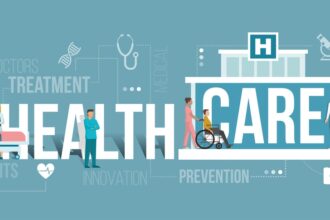Even in this modern day-and-age where health care is more advanced and available than ever before, many patients in the United States, unfortunately, face barriers to accessing the health care they need. Here are six common barriers and how they can be overcome.
1. Being Uninsured
Despite the Affordable Care Act, tens of millions of Americans remain uninsured for health care. The most common reason is not being able to afford even basic insurance. In 2017 alone, one in five uninsured adults in the US went without medical care due to the cost. Sadly, that included medical care for serious health conditions and chronic diseases.
One way for uninsured patients to gain medical advice is to use a direct-to-consumer telehealth service that charges a flat rate. But it is also vital that more Americans are educated about their health care options and how charities, non-profits, and other organizations could help.
2. Proving Income to Access Public Health Insurance, e.g. Lacking Paystubs
Speaking of insurance. Another barrier can be not having the right documentation to access public health insurance. For example, patients need to prove their incomes when applying for health insurance.
If they are lacking the paystubs needed to prove their salaries, the process can become complex and they could even end up not qualifying for the insurance. Thankfully, the answer to this issue is simple.
Patients just need to make sure that they have all documents that insurers require. Using online tools like a paystub generator can be very useful to make sure patients have accurate information.
3. The Limitations of Daytime Office Hours
Many healthcare organizations offer typical office hours for patients that range from 8 a.m. to 6 p.m. But there are lots of different types of people who struggle to visit a healthcare professional during normal office hours, such as night shift workers and people with day jobs who cannot take time off.
Patients, of course, should be able to access health care when they want it or need it. One way in which health care facilities can help patients overcome this problem is by expanding their hours.
Some health care organizations are also now offering telehealth services in which patients can get advice from doctors and other medical professionals virtually. Another way of helping patients who cannot access daytime office hours is to provide a service that points them to their nearest urgent call centers or retail clinics.
4. Living in Rural Areas
Patients who live in rural areas have more barriers to accessing health care than patients living in urban or suburban areas of the US. There are a number of challenges that rural dwellers face, but the two main ones are living too far away from the nearest facility and those facilities regularly having clinician shortages.
When you consider that around 57 million people in the US live in rural areas, you can start to see just how big this barrier is. Telehealth services, in which patients can speak to health care professionals virtually, are certainly starting to help the situation, but more facilities and more clinicians are still needed in rural areas to fully overcome the problem of patient geographic location.
5. Lacking Transportation
According to a 2017 report from the American Hospital Association, every year, around 3.6 million Americans do not get the medical care they need because of transportation problems. In fact, the issue of transportation is cited as one of the most common barriers to accessing health care in the US.
Transportation issues include not being able to afford fuel, not having access to a vehicle, and not having access to adequate public transport. One way in which the issue is being solved is via health care organizations partnering with companies like Uber and Lyft to ensure patients can get to appointments. Once again, gaining advice from medical professionals via telehealth services can also help patients with transportation problems.
6. The Challenges for Seniors and People with Disabilities
Following on from the last point concerning transportation, one group of patients who face a barrier of receiving health care is elderly and mobility-impaired people. If they are unable to drive or use public transport, getting access to health care becomes more problematic.
Around 40% of the US population has a disability and around 15% are seniors, so there are lots of people in this group who face the challenges of accessing healthcare. Getting to appointments can be stressful and time-consuming, and sometimes the process can be so laborious that the patients miss their appointments.
In addition to telehealth services, remote patient monitoring tools can be used to help patients who are elderly or have a disability. For instance, with technologies that can check things like blood pressure and heart rate, patients will not need to see doctors in person as often.










